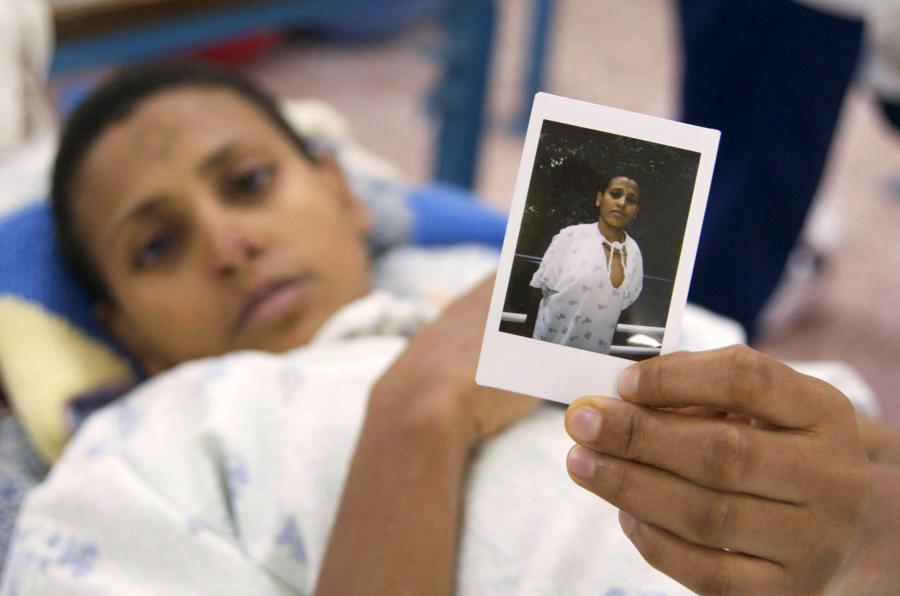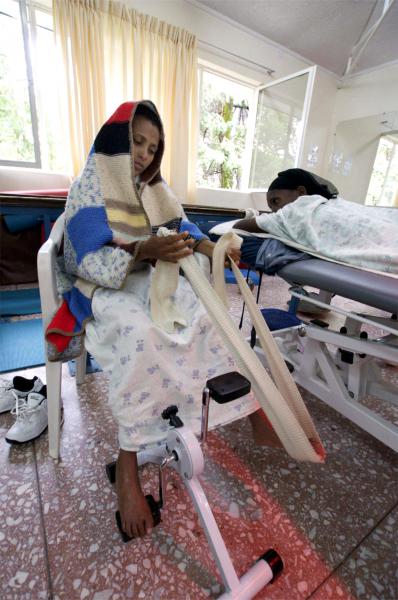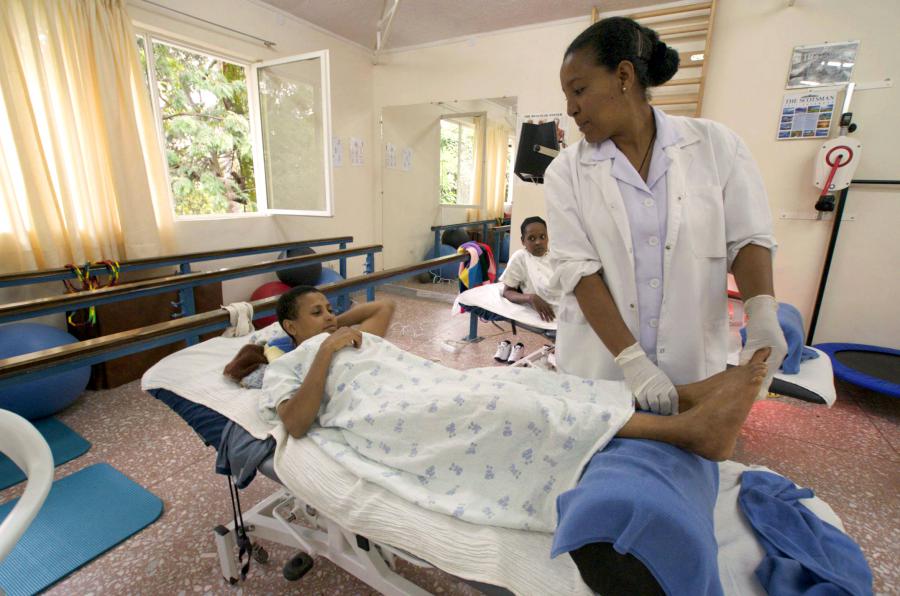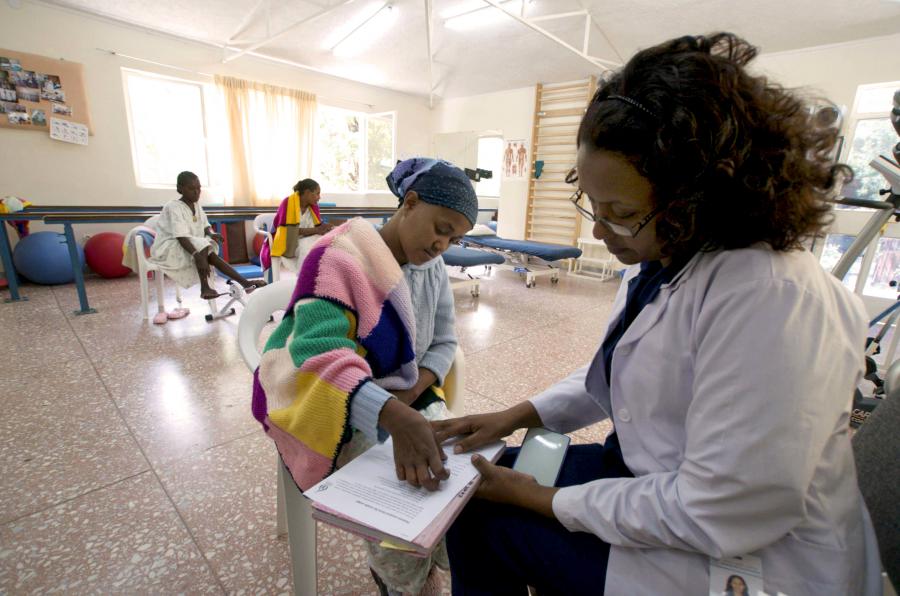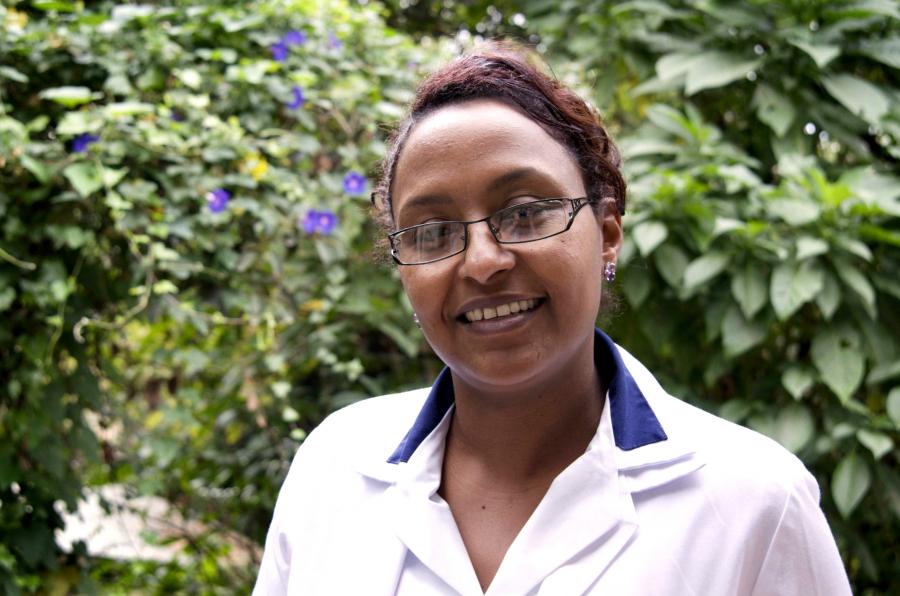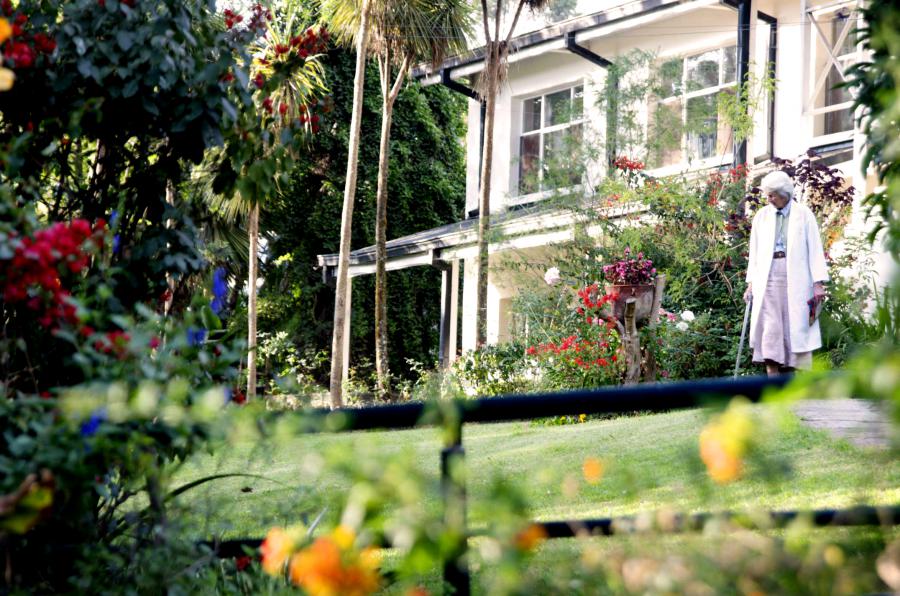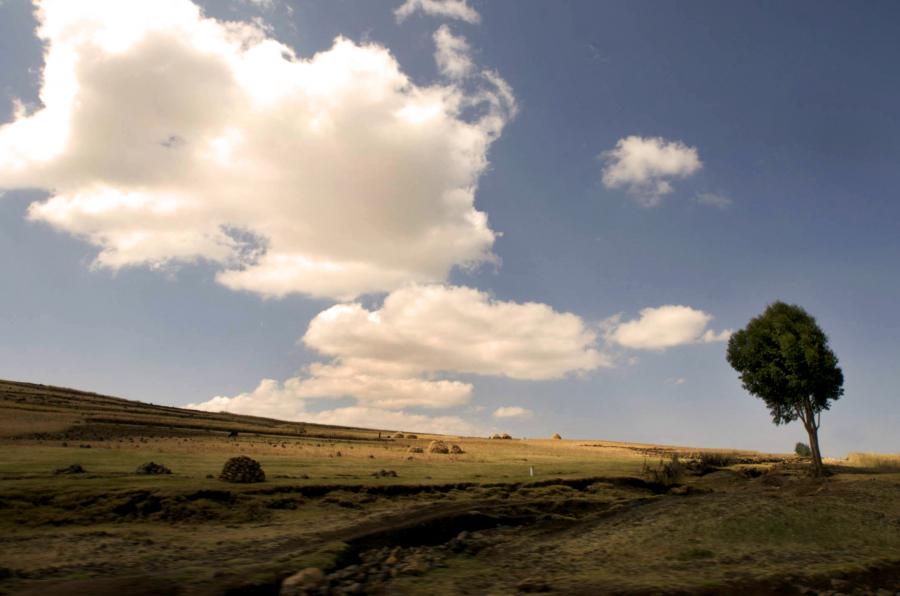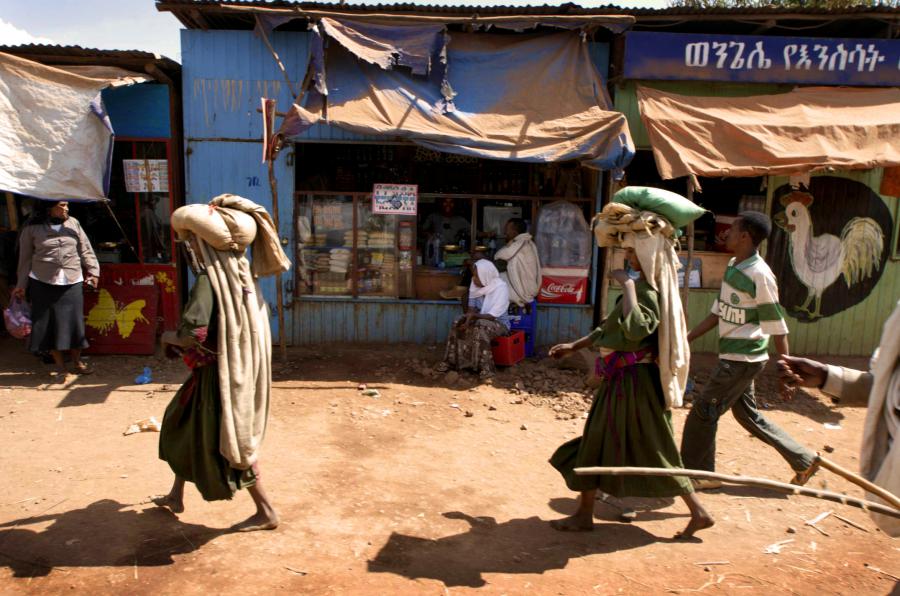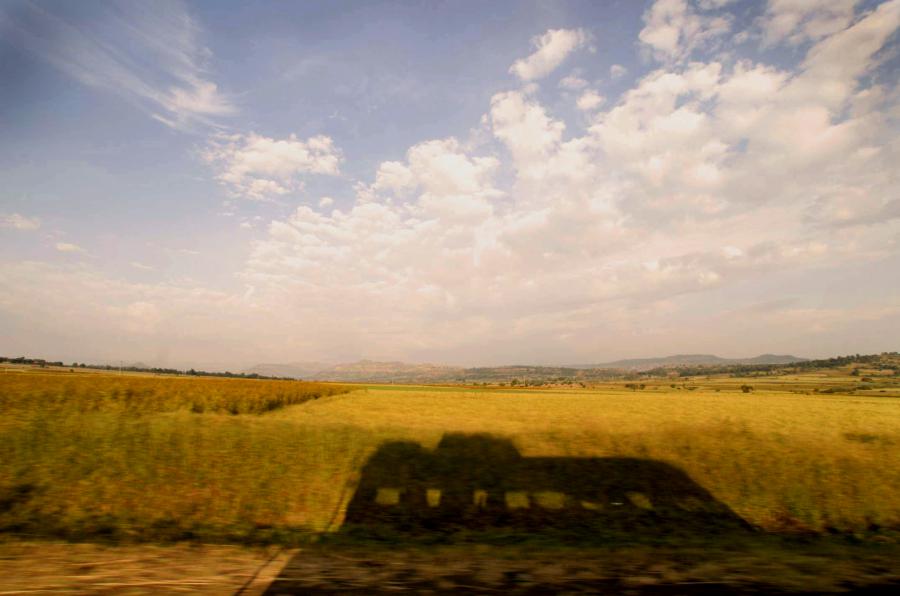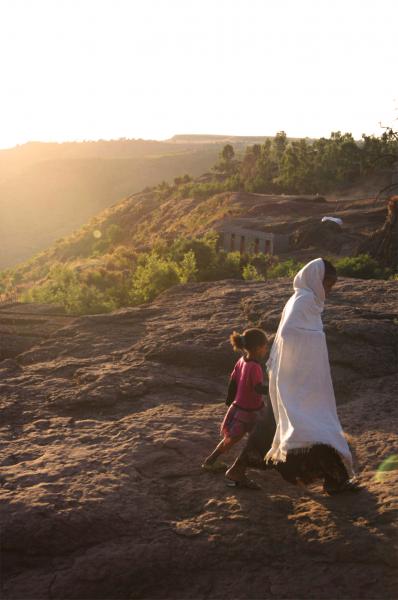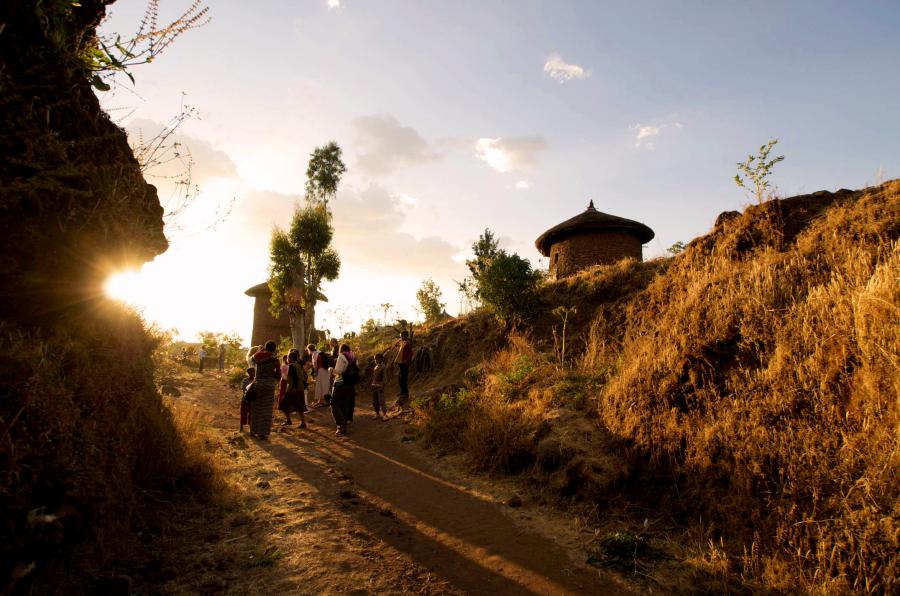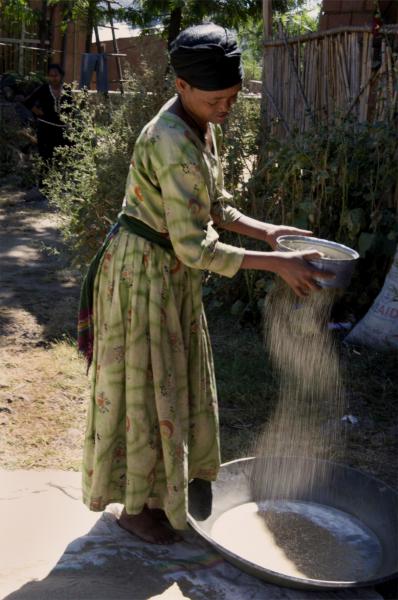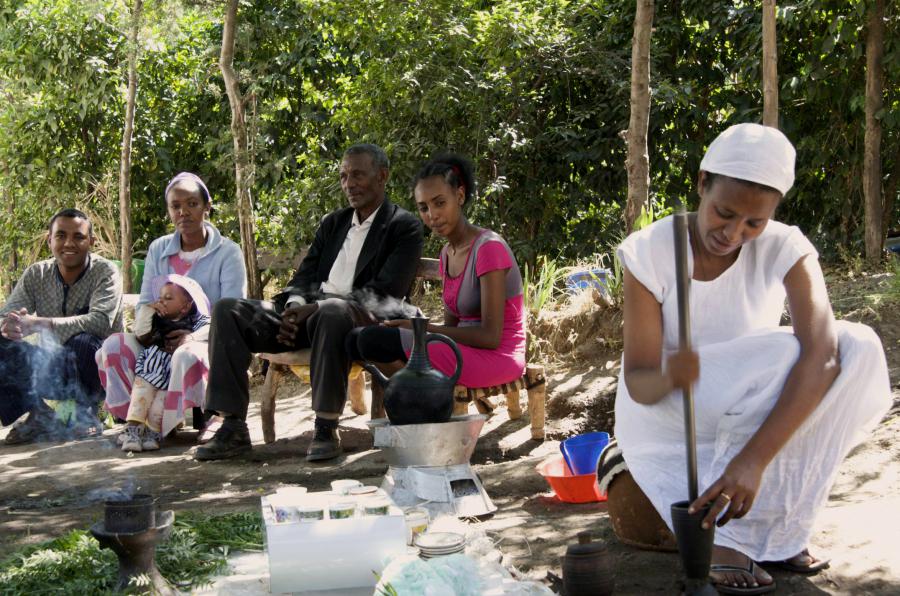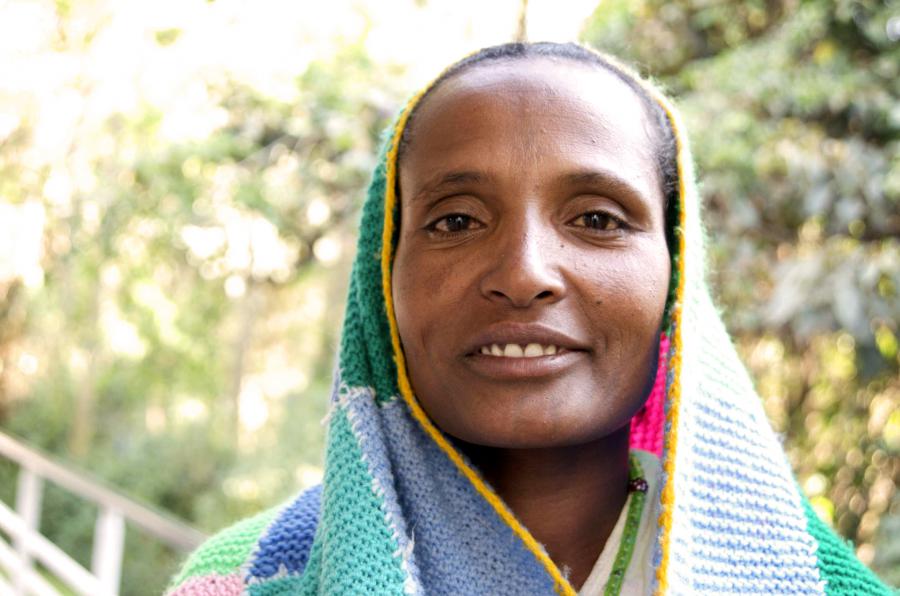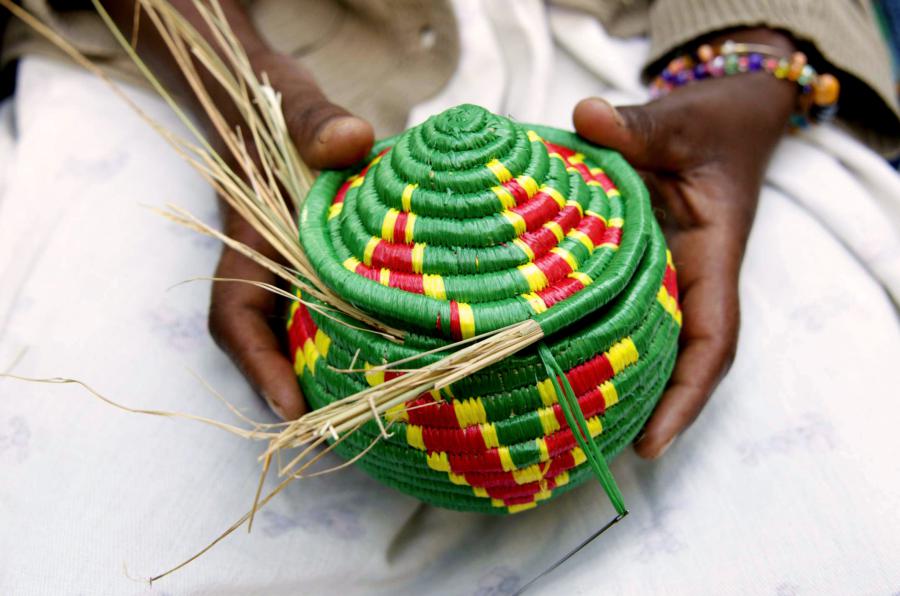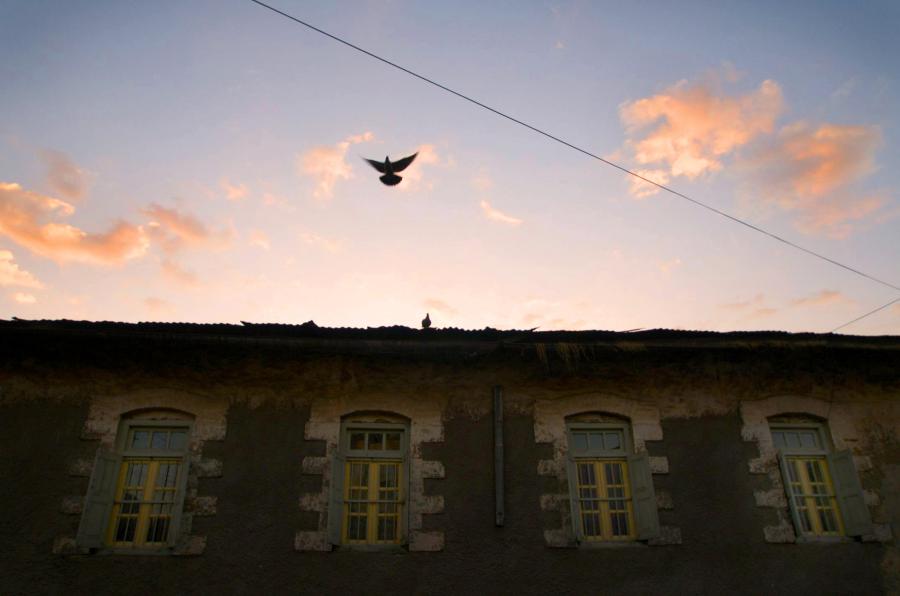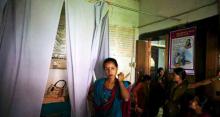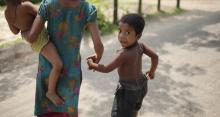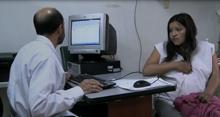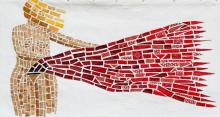Etaferaw’s Journey Past Fistula
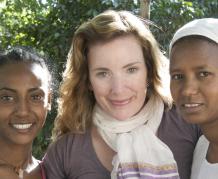
At the Hamlin Fistula Hospital, an incredibly frail woman, Etaferaw Zelalem, is waking up to start her day. Her goals for that day seem simple, though extremely painful. She is learning how to walk again. The last time she walked was seven years before, in her northern village of the Bahir Dar region, hundreds of miles away.
Etaferaw had become pregnant at just 13 years of age after being married off by her family, and she was unable to deliver her baby after ten days of obstructed labor without medical care. She and her family were unable to afford a bus ride to get to medical care during her labor. Etaferaw’s baby died during delivery, and as a result of a severely long, obstructed labor, she developed fistulas—or holes, through which urine and feces pass uncontrollably.
For seven years Etaferaw had been living in her village, isolated, uneducated, unable to work and shunned by her family and villagers, with constant leaking from her uterus and rectum, until a NGO rescued her by a chance meeting and rushed her to Hamlin Fistula International Hospital in Addis, Ethiopia. Hamlin provides fistula surgical treatment and rehabilitation, and also works toward the prevention of fistula through a recently launched midwifery school and provision of rural medical outreach to women in Ethiopia through five mini rural hospitals.
Upon my first meeting of Etaferaw, I was struck by how incredibly slight and weak she looked. It was clear she was in great pain. At first, Etaferaw was shy in front of the camera but after our spending more time together, she opened up and was proud to be someone to be seen, rather than hidden away. She gathered the strength to show me that she could stand without her walker. And despite her shame of having had an acute double fistula, she expressed true happiness and a worn relief to be receiving treatment at Hamlin-- a place that strives to provide excellent medical, holistic and humanistic care to women and at no cost to them if they can make it there.
When I asked Etaferaw, "What are your dreams for a life outside of Hamlin?" she replied in Amharic through Sister Azeb Befekadu, Hamlin's Physiotherapy Manager and my translator, "God willing that I can walk again. Then I can think about dreams.”
Etaferaw’s struggle is not unique. Many women in Ethiopia suffer from fistula, and many other women in Ethiopia, as well as across Africa, die due to complications from pregnancy and childbirth.
Hamlin Fistula Hospital, originally founded nearly 40 years ago by Dr. Catherine Hamlin and her late husband, Dr. Reginald Hamlin, treats an average of 3,000 cases of fistula per year, with minimal (and extremely hardworking) medical and administrative staff. Since 2005, Dr. Catherine Hamlin and her staff have opened up a handful of rural mini clinics, and in 2009 opened up the Hamlin College of Midwives, located at the Desta Mender campus in the outskirts of Addis.
The work toward eradicating obstetric fistula in Ethiopia has accelerated in pace in recent years, which can be partially attributed to the advent and spread of news stories, photography and videos throughout the internet. Social media organizations such as SalaamGarage, and online fundraising efforts with Kickstarter and Blurb, in addition to offline initiatives such as art exhibitions, lectures and fundraising events, and books. With more global awareness, the ability to raise funds has grown at a rapid rate toward prevention initiatives.
Sarah Henderson is a photographer, director and producer of still and motion picture projects, based out of Portland, Oregon. Sarah spent several years in San Francisco developing her career as a creative storyteller. Her work serves a diverse range of clients, from corporate to independent; and her subjects range from Olympic athletes to art, culture, and health topics of our time. Currently, Sarah is co-directing a documentary with Erich Lyttle, "We Grew Wings", for executive producer, Ellen S. Devlin, to tell an untold story about an impressive array of athletes, with the hope of inspiring girls and women from all backgrounds to pursue their dreams in sport and life. For more information, visit her website at sirenapictures.com.
Related Content
|
This photo essay depicts pregnant women in Nepal and introduces us to the men and women who guide mothers through a healthy delivery. |
This photo essay shows the mothers and children of Bangladesh, where extreme poverty reigns but maternal health has improved in recent years. |
A woman in Colombia gives birth in this short film, which also illuminates the problems related to limited medical resources for women. |
As a way to process and release the pain and anger around her traumatic labor and delivery, Renee Hoffman created this Cesarean Quilt. |
